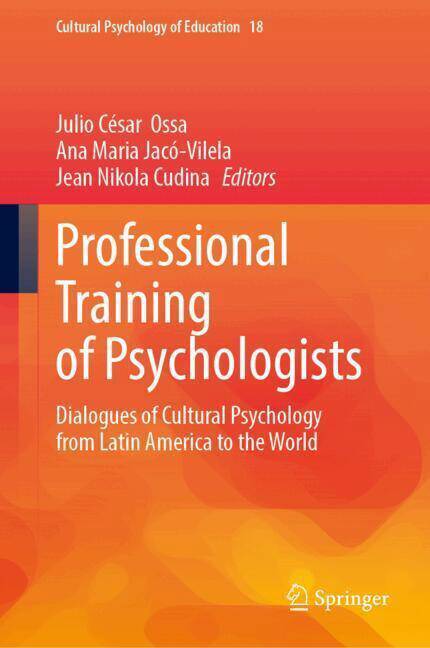
- Afhalen na 1 uur in een winkel met voorraad
- Gratis thuislevering in België vanaf € 30
- Ruim aanbod met 7 miljoen producten
- Afhalen na 1 uur in een winkel met voorraad
- Gratis thuislevering in België vanaf € 30
- Ruim aanbod met 7 miljoen producten
Professional Training of Psychologists
Dialogues of Cultural Psychology from Latin America to the World
Omschrijving
This book represents an intellectual journey through the history, culture, and training of psychologists in Latin America to transcend borders. It analyzes the inception of academic programs in each country in the region, exploring the socio-political and economic context, and delves into the conceptual, methodological, and epistemological aspects of training. Similarly, it discusses how psychology prepares professionals for their roles in society and provides updated data on the discipline's growth in the region. Furthermore, it promotes international and intercultural dialogue, enriching the global understanding of psychology. The book's emphasis on adopting a historical and cultural approach is essentially an effort to introduce a critical component to the analysis of psychologist professional training. This component adds value for the reader and aids in understanding how Latin American psychology has been shaped by historical events, social movements, government policies,and the diverse cultural traditions of the region. Readers will gain a profound understanding of why psychology has developed in a particular way in each Latin American country, shedding light on significant variations in psychological practice and theory in this part of the world. Essentially, this work constitutes an invaluable resource for academics, professionals, and anyone interested in understanding the intersection between psychology and the rich historical and cultural diversity of Latin America.
Specificaties
Betrokkenen
- Uitgeverij:
Inhoud
- Aantal bladzijden:
- 190
- Taal:
- Engels
- Reeks:
- Reeksnummer:
- nr. 18
Eigenschappen
- Productcode (EAN):
- 9783031860829
- Uitvoering:
- Hardcover
- Afmetingen:
- 155 mm x 235 mm

Alleen bij Standaard Boekhandel
Beoordelingen
We publiceren alleen reviews die voldoen aan de voorwaarden voor reviews. Bekijk onze voorwaarden voor reviews.










